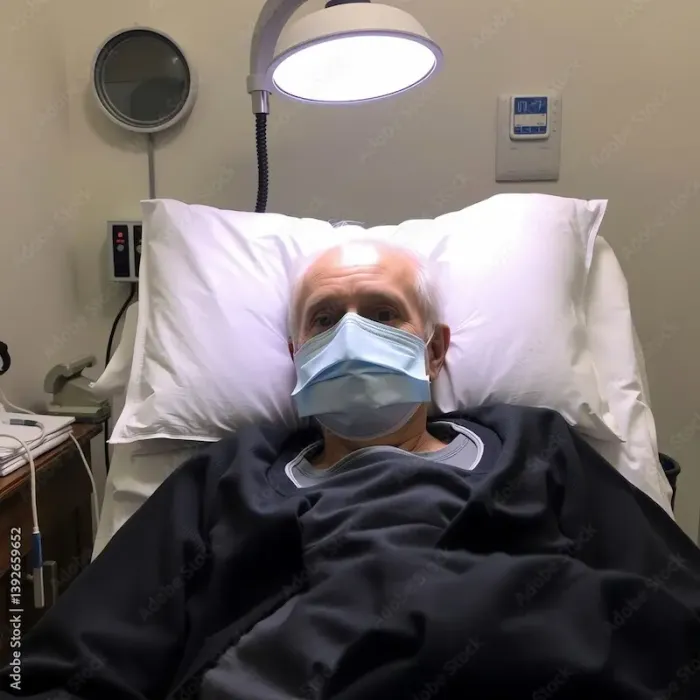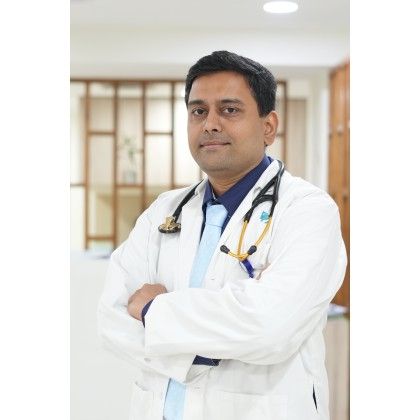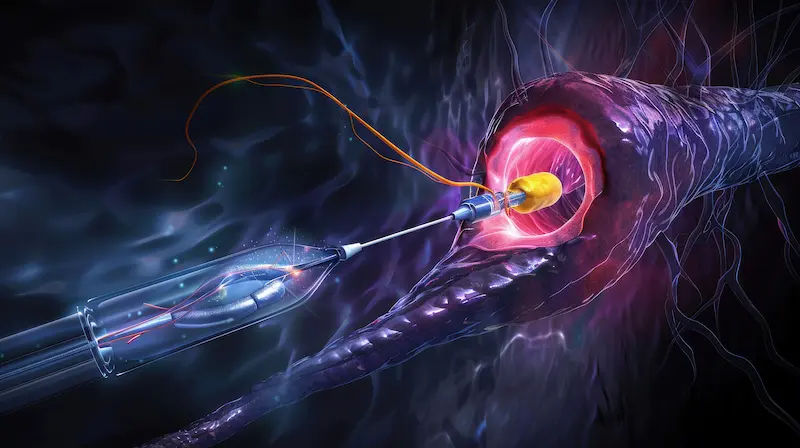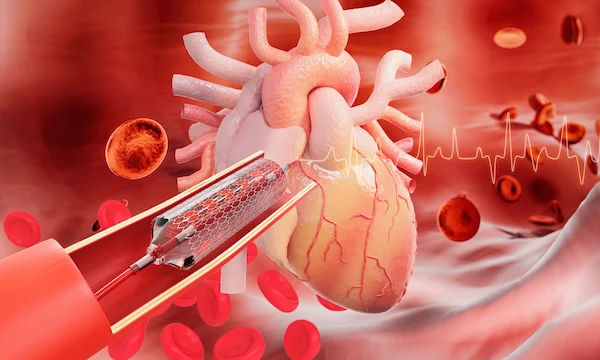How To Sleep After Bypass Surgery?
Discover helpful tips on how to sleep after bypass surgery. Learn about safe sleeping positions, pain management, and when to seek medical help.

Written by Dr. Siri Nallapu
Reviewed by Dr. Dhankecha Mayank Dineshbhai MBBS
Last updated on 13th Jan, 2026

Introduction
Recovering from bypass surgery is a significant milestone, and getting proper rest is crucial for healing. However, many patients struggle with sleep disturbances after the procedure due to discomfort, pain, or anxiety. If you or a loved one has recently undergone bypass surgery, this guide will help you understand how to sleep better and support your recovery journey.
Why Is Sleep Important After Bypass Surgery?
Sleep plays a vital role in healing. It helps:
Reduce stress on the heart.
Boost immunity to prevent infections.
Promote tissue repair for faster recovery.
Improve mood and mental health, reducing post-surgery anxiety.
Poor sleep can slow down recovery, increase fatigue, and even elevate blood pressure, which is risky after heart surgery.
Common Sleep Challenges After Bypass Surgery
Many people find it difficult to sleep well after surgery. Patients often experience:
1. Pain or discomfort – The surgical incision, especially if it’s in the chest (sternotomy), can make finding a comfortable sleeping position difficult.
2. Shortness of breath – Fluid buildup or weakened heart function may cause breathing difficulties at night.
3. Anxiety or stress – Worrying about recovery can lead to insomnia.
4. Medication side effects – Some drugs may cause drowsiness during the day or disrupt sleep at night.
5. Sleep apnea – Some patients develop or worsen sleep apnea after heart surgery.
Consult Top Specialists for Personalised Heart Health Advice
Best Sleeping Positions After Bypass Surgery
Finding the right position can ease discomfort and improve sleep quality:
1. Sleeping on Your Back (Slightly Elevated)
Place a pillow under your head and upper back to keep your chest slightly elevated. This helps reduce strain on the incision and improves breathing.
2. Sleeping on Your Side (With Support)
If lying on your back is uncomfortable, try sleeping on your side. Place a pillow between your knees to reduce pressure on your hips and spine. Avoid putting too much weight on the side of the incision.
3. Avoid Sleeping Flat on Your Stomach
This position puts pressure on the chest and can cause pain.
Tips for Better Sleep After Bypass Surgery
Resting well may require small adjustments to your routine and environment. Consider the following supportive measures:
1. Manage Pain Effectively
Taking pain medication as prescribed and using pillows to support sensitive areas may help reduce nighttime discomfort.
2. Create a Relaxing Sleep Environment
Keeping the bedroom quiet, dark, and cool might make it easier to fall asleep. Calming background sounds or dim lighting could also be helpful.
3. Follow a Sleep Schedule
Maintaining consistent sleep and wake times each day may support your body’s internal clock. Short naps of about 20-30 minutes can help, but avoid long daytime naps.
4. Practice Relaxation Techniques
Gentle breathing exercises or meditation before bed might help reduce anxiety and encourage relaxation.
5. Stay Active (Within Limits)
Light physical activity during the day, such as walking (as recommended by your doctor), might promote better sleep at night.
6. Watch Your Diet
Avoiding caffeine, alcohol, and large meals close to bedtime may prevent sleep disruptions. Drinking fluids earlier in the day might reduce nighttime bathroom trips.
7. Use Assistive Devices if Needed
Supportive items such as wedge pillows or, in some cases, CPAP machines may assist in maintaining a comfortable and safe sleeping posture.
When to Seek Help
Consult your doctor if:
You experience severe pain that disrupts sleep despite medication.
You have persistent shortness of breath at night.
You notice signs of sleep apnea (loud snoring, gasping for air).
Insomnia lasts longer than a few weeks.
Final Thoughts
Sleep is a crucial part of recovery after bypass surgery. While it may take time to adjust, following these tips can help you rest better and heal faster. Be patient with yourself—your body is recovering from a major procedure.
If you’re struggling with sleep or other post-surgery concerns, don’t hesitate to reach out to your healthcare provider. You can also book a consultation with a specialist on Apollo 24|7 for personalised advice.
Consult Top Cardiologists
Consult Top Specialists for Personalised Heart Health Advice

Dr. Zulkarnain
General Physician
2 Years • MBBS, PGDM, FFM
Bengaluru
PRESTIGE SHANTHINIKETAN - SOCIETY CLINIC, Bengaluru

Dr. Tripti Deb
Cardiologist
40 Years • MBBS, MD, DM, FACC, FESC
Hyderabad
Apollo Hospitals Jubilee Hills, Hyderabad

Dr. Haider Shaik.
Cardiologist
5 Years • MBBS, MD (Pulmonology) DrNB (Cardiology)
Guntur
Kalam chest and multi-speciality clinic, Guntur

Dr. E Prabhakar Sastry
General Physician/ Internal Medicine Specialist
40 Years • MD(Internal Medicine)
Manikonda Jagir
Apollo Clinic, Manikonda, Manikonda Jagir
(150+ Patients)

Dr Gautam Naik
Cardiologist
12 Years • Senior ConsultMBBS, MD (General Medicine), DM (Cardiology), Interventional Cardiology Fellowship (Royal Papworth Hospital, Cambridge, UK), Structural Heart Intervention Fellowship (Barts Heart Centre, St Bartholomew's Hospital, London)
Delhi
Apollo Hospitals Indraprastha, Delhi
(50+ Patients)
Consult Top Cardiologists

Dr. Zulkarnain
General Physician
2 Years • MBBS, PGDM, FFM
Bengaluru
PRESTIGE SHANTHINIKETAN - SOCIETY CLINIC, Bengaluru

Dr. Tripti Deb
Cardiologist
40 Years • MBBS, MD, DM, FACC, FESC
Hyderabad
Apollo Hospitals Jubilee Hills, Hyderabad

Dr. Haider Shaik.
Cardiologist
5 Years • MBBS, MD (Pulmonology) DrNB (Cardiology)
Guntur
Kalam chest and multi-speciality clinic, Guntur

Dr. E Prabhakar Sastry
General Physician/ Internal Medicine Specialist
40 Years • MD(Internal Medicine)
Manikonda Jagir
Apollo Clinic, Manikonda, Manikonda Jagir
(150+ Patients)

Dr Gautam Naik
Cardiologist
12 Years • Senior ConsultMBBS, MD (General Medicine), DM (Cardiology), Interventional Cardiology Fellowship (Royal Papworth Hospital, Cambridge, UK), Structural Heart Intervention Fellowship (Barts Heart Centre, St Bartholomew's Hospital, London)
Delhi
Apollo Hospitals Indraprastha, Delhi
(50+ Patients)
.webp)



